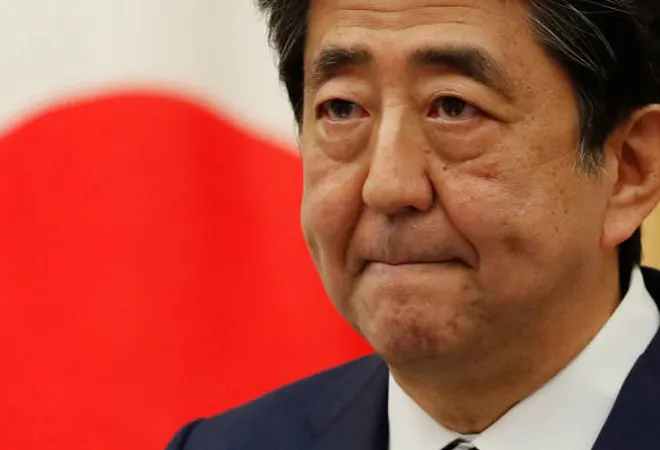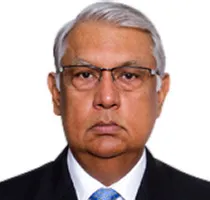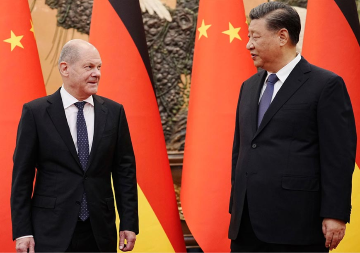
In a peaceful country known for discipline, hard work, and innovation, overcoming the devastation of the Second World War and the two nuclear attacks, Japan has few peers. It was consequently, a tsunami of shock that spread across the world when the news of the assassination of Shinzo Abe spread. Abe was assassinated while addressing a small crowd at a street corner election rally, in the city of Nara. The global outrage was spontaneous and widespread, in recognition of Shinzo Abe’s sterling qualities as a political leader and visionary, both in the domestic and international arenas. Abe’s demise leaves a huge void in Japan’s politics and his Liberal Democratic Party which currently holds the reins of the government.
The global outrage was spontaneous and widespread, in recognition of Shinzo Abe’s sterling qualities as a political leader and visionary, both in the domestic and international arenas.
This assassination is even more surprising given that Japan’s gun licensing laws are extremely strict. Political violence in Japan is very rare and the previous assassination attempt was with a knife on PM Nobosuke Kishi in 1960. Coincidently, Kishi was Shinzo Abe’s grandfather. Shinzo Abe’s assassin, a 41-year-old Japanese male, had an improvised homemade gun. The former PM suffered two fatal gunshot wounds and succumbed to his injuries in a hospital.
About Abe
Sixty-seven-year-old Shinzo Abe was Japan's longest-serving PM, who served from 2006 to 2007 and again from 2012 to 2020. He resigned due to health reasons but remained active behind the scene. Abe was no ordinary politician; he came from a political family with two family members who were former prime ministers of Japan. He was a man of ideas and wanted to remodel Japan’s role on the global stage. Abe was the first to conceive the vision of a “Free and Open Indo-Pacific” and Quadrilateral Security Dialogue (QUAD) which is a regional grouping with the US, India, Japan and Australia as member states.
Kishi and Abe were both considered nationalist politicians, believing in strengthening Japan’s military by removing restrictions in the 1948 Constitution—imposed by the American occupation regime which forbade Japan to re-militarise and be a pacifist nation in alliance with the United States (US). This remains a controversial issue, not just domestically but also regionally. China and South Korea are vehemently opposed since both were under Japanese occupation in the pre-war period; Japan’s war crimes remain hugely emotive issues.
The controversy is about the fact that “war criminals” who were imprisoned and executed after the Second World War are included in the list of those commemorated by the shrine.
However, Shinzo Abe was not beyond courting controversy; he visited the Yasukuni Shrine as PM even though it could lead to a regional outcry. The Yasukuni Shrine is a memorial established in 1869, dedicated to the 2.5 million Japanese who have died in all wars. The controversy is about the fact that “war criminals” who were imprisoned and executed after the Second World War are included in the list of those commemorated by the shrine. Principally, for this reason, the shrine is viewed as a symbol of Japan’s past military aggression. Any visit by a prominent Japanese personality inevitably leads to protests by China, South Korea, and the US in different degrees of vehemence.
Abe began his second tenure as PM, with an attempt to court Beijing and but his efforts were aborted by the COVID pandemic. He understood that China’s predatory policies had churned the waters of the Indo-Pacific and wanted to transform Japan from a pacifist bystander into an active security player.
Abe’s familiarity with India began while sitting on his grandfather’s lap. The first Japanese PM to visit India in 1957 was Nobusuke Kishi. Abe often recalled with affection stories he had heard as a child about India from his grandfather. Japan’s role as India’s leading development partner began with the first Yen loan in 1958. PM Modi enjoyed a special bond with PM Abe even when the former was the Chief Minister of Gujarat. It was Abe who crossed the Rubicon and recognised India as a nuclear power after the two countries signed the Civil Nuclear Agreement in 2016. Abe was also forthcoming in sharing mutual concern about China’s aggression and expansionism. Abe ventured boldly in moulding bilateral ties and authorised joint projects in India’s Northeastern states, to help India’s “Act East Policy”. Apart from the revival of the QUAD, Abe also joined the bilateral Asia-Africa Growth Corridor.
Japan’s role as India’s leading development partner began with the first Yen loan in 1958. PM Modi enjoyed a special bond with PM Abe even when the former was the Chief Minister of Gujarat.
Unarguably, Shinzo Abe could see the future of the emerging new international order. He was, in some quarters, regarded as a revisionist who wanted to build a new economic and security architecture across the Indo-Pacific. He was, undoubtedly, motivated by Japan’s evolving national interest in balancing the rise of China. Abe also did not hesitate to support India in its border dispute with China and was vocal about defending Taiwan in case of an invasion by China.
His death may expedite Japan’s move towards raising the defence budget and revoking the anti-war clause in the Constitution; both of which are issues Abe rallied for. On the domestic front, another important political manoeuvre attributed to him include his economic policies known as “Abenomics”. Abe’s legacy in pushing systemic changes like inducting more women into the workforce and easier immigration rules to bring in working-age people were policy measures to shake up the status quo. In the international domain, Abe’s enduring legacy will be his vision of the Indo-Pacific, a more robust role for Japan in the security architecture of Asia, and his contribution to bilateral ties with India.
The views expressed above belong to the author(s). ORF research and analyses now available on Telegram! Click here to access our curated content — blogs, longforms and interviews.




 PREV
PREV


